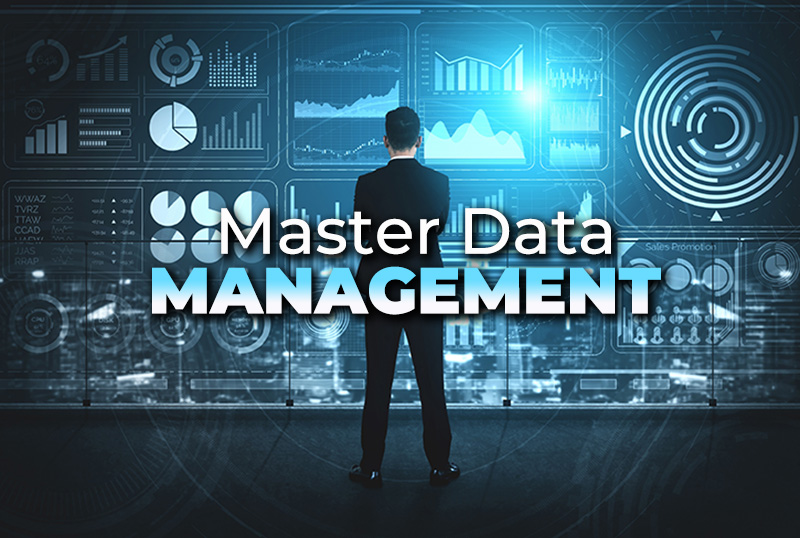Significant volumes of data are collected across an organization and processed using outsourced solutions like data entry, data cleansing, and document scanning. Master data is all the core business data across an organization and comprises product, supplier, and customer information. Efficient master data management (MDM) is essential for accurate analytics and business decisions.
Accenture defines master data as “an organization’s single source of basic business data used across multiple applications and processes”. What are the characteristics that define master data? Master data objects are those that are used in different applications across an organization. Common examples of master data include:
- customers
- employees
- suppliers
- vendors
- products
- transactions
- locations
- accounting items
- policies
- contracts
A master data system comprises a master data set that coordinates all the important characteristics in the original source for use by the organization. Proper governance and insights are essential to utilize this information
What is Master Data Management?
With the explosion of data across organizations, it has become crucial to maintain the quality of data used for analytics and ensure consistency of data across analytical and operational systems. Master data management (MDM) involves collecting, unifying, handling, and using that data to create a standard access point for all the relevant data in an organization.
According to Gartner, “Master data management (MDM) is a technology-enabled discipline in which business and IT work together to ensure the uniformity, accuracy, stewardship, semantic consistency and accountability of the enterprise’s official shared master data assets”.
Businesses generally store data in a variety of IT systems. MDM is a set of best practices that creates a uniform and accurate set of data on customers, products, suppliers and other business entities from these different systems. By improving the quality of the data, accurate MDM can drive operational efficiencies and help optimize business processes.
Reasons for the Growing Significance of Master Data Management
MDM is growing in importance. The global MDM market is expected to reach $39.4 billion by 2028, expanding at a CAGR of 15.6% during 2022-2028, according to a new report from ResearchAndMarkets.com. There are various reasons why MDM has become so important:
- Provides comprehensive customer information: MDM provides a single source for all customer information and combines all customer activity on it. This information can be used to create strategies, for targeted marketing, and to provide excellent customer support. For instance, a bank may have several customer banking interfaces through which customer records may be operated and managed. Coordinating all of this information in a master data repository will help the bank know how many customers they have, their preferred banking options, the different ways of transactions they experimented with, and more.
- Improved customer service: With a consolidated view of master data, organizations can make upgrades to meet customer expectations and better respond to customer orders and inquiries as well as manage and protect customer data with greater transparency.
- Better financial analysis and planning: Coordinating supplier and vendor master data improves the organization’s ability to synchronize purchasing activities, leverage competitive sourcing, forecast future expenses more correctly, and improve vendor and supplier management.
- Consistent reporting: When processes are managed using master data, it reduces inconsistencies in reporting.
- Improves decision-making, reduces costs and improves operational efficiency: MDM provides consistent information across applications by reducing data variability, and replication or duplication of data. When organizations have with a unified view of their data, they can take the right decisions to reduce operating costs and unproductive tasks. Reliable data allows for clearer and faster business decisions.
- Improved risk management: Multiple data points across applications increases risks of inconsistencies, duplication and missing information. With MDM, the organization would have more reliable and consistent financial information, which increases its ability to manage business risks.
- Increases regulatory compliance: Regulatory compliance has increased with digitization and is a major risk area for enterprises. MDM makes regulatory compliance easier. With a consistent and unified view of enterprise data, information auditing is simplified, which in turn improves data quality and governance.
- Improved competitiveness: By reducing the challenges involved in integrating new data and systems into the organization, MDM improves business agility and competitiveness.
A recent Forbes report highlights that in the digital era, MDM is moving beyond its traditional approach, and that the push for next generation of MDM is driving “exciting advances” to personalize the customer experience and build long-term, sustained associations with them. This requires more advanced data management strategies and tools to exploit artificial intelligence and machine learning.
An experienced business process outsourcing company can ensure accurate, relevant, trustworthy, and timely data which is essential for MDM. With increasing digitization, BPO has gained traction across a wide range of industries, from banking, financial services and insurance (BFSI) to manufacturing, healthcare, IT & telecommunications, retail, and more.




